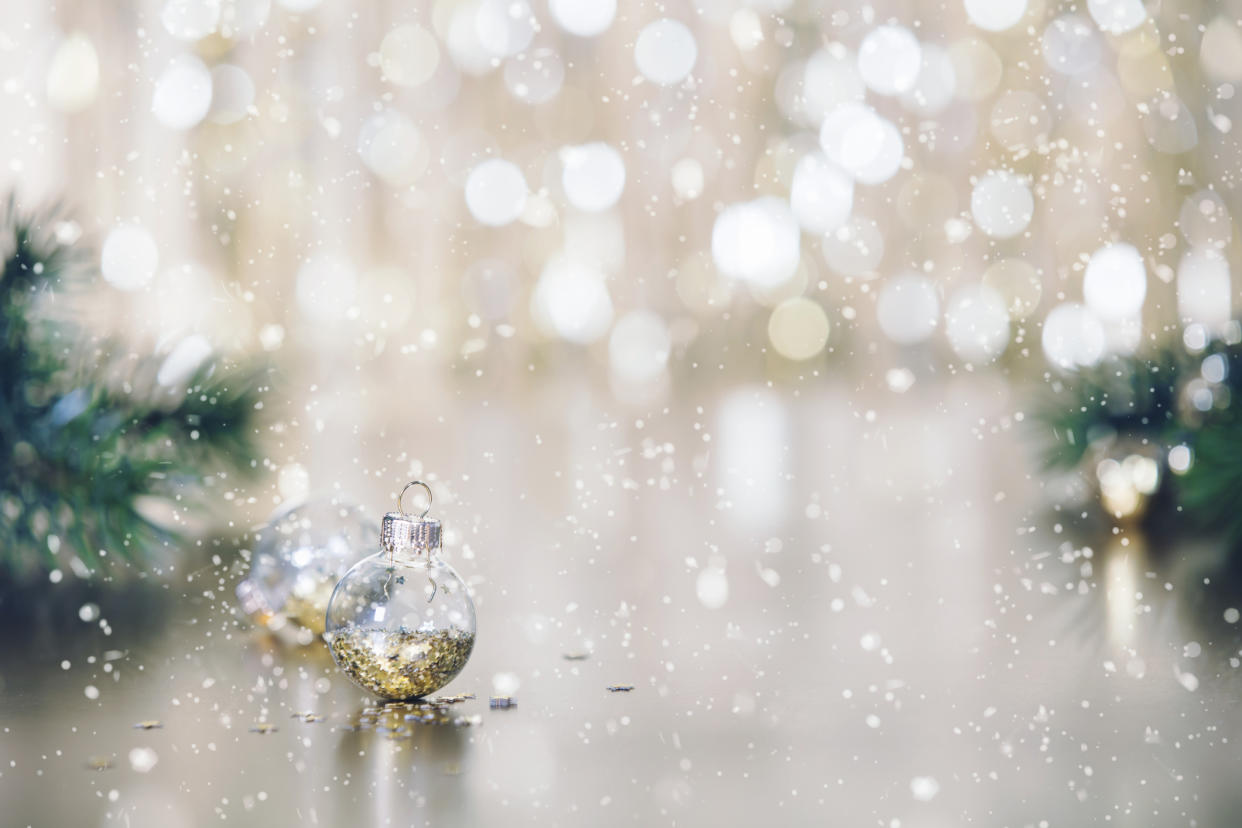Morrisons, John Lewis and Waitrose pledge to ditch glitter for Christmas

Morrisons, Waitrose and John Lewis have announced they won’t be putting glitter on any of their own-brand Christmas products this year, in a bid to reduce festive plastic pollution.
As part of a nationwide push from retailers to be more environmentally-friendly, the shops’ own-brand products will not feature the small, shimmery plastics, which can harm wildlife and even end up in the food chain after failing to properly decompose.
Glitter is made from tiny particles of plastic and is an ecological hazard if it becomes dispersed on land, rivers and oceans, where it takes hundreds of years to degrade.
In a statement on Wednesday 14 October, Morrisons said that all its own-brand cards, wrapping paper, present bags, flowers, plants and wreaths would be glitter free.
The glitter-ban also extends to non-seasonal lines meaning customers can shop more sustainably all year round.
Watch: Rent a reindeer sees bookings crash as Christmas events are cancelled this year.
Pledging to remove 50 tonnes of plastic from its branches over the festive period, and beyond, Christine Bryce, Morrisons home director, said: “Every time a cracker is pulled, or a card is opened, plastics have been used... but just the once.
“So, we’ve taken glitter and plastic out of our festive range this year - so that our customers can enjoy their festivities without worrying about the environmental impact.
“This means that we’re now 100% glitter free across all our own-brand ranges which is an important step in the fight against plastic pollution.”
In a further sustainability move, Morrisons has also removed all plastic toys from its Christmas crackers, which will be completely plastic-free this year. The majority of the supermarket’s Christmas cards will come boxed in recyclable cardboard and 100% of packaging on cards and decorations can be recycled by local authorities.
Read more: Boots No7 advent calendar is here: Get £172 worth of beauty products for only £45
The supermarket is joined by Waitrose and John Lewis, which will also not feature glitter on single-use products this year.
“All own-brand cards, crackers, wrapping paper, gift bags are now 100% glitter-free,” a representative from the stores said, according to the BBC.

Read more: Succulent Christmas trees are the Insta-worthy decor trend we need in 2020
Last year, Waitrose & Partners confirmed that by Christmas 2020, its own label cards, wraps, crackers, tags, flowers and plants will either be glitter-free, or the retailer will use an environmentally-friendly alternative.
The company has set a target to make its own brand packaging widely recyclable, reusable or home compostable by 2023.
And Waitrose is not alone in striving towards reducing the plastic footprint of Christmas.
Asda is launching its very first sustainable Christmas range and Boots is also cutting out single-use plastic packaging from Christmas gifts, promising to banish 2,000 tonnes in total.
Meanwhile Sainsbury’s has promised “customers will find no glitter on our Christmas cards, wrapping paper or gift bags,” while also cutting down on the glitter it uses on crackers, decorations and flowers
Tesco has said it will only be using edible glitter in its own ranges.
Marks & Spencer has already implemented similar measures on its Christmas items and Selfridges pledged to ban all plastic-based cosmetic glitter by 2021.
Read more: Morrisons launch family Christmas dinner box for just £50
Campaign group Friends of the Earth said retailers “are right to ditch unnecessary plastic this Christmas".
"People can still enjoy the festive season without the glitter and pointless packaging that add to the waves of plastic pollution that pour into our environment every year and threaten our wildlife," Friends of the Earth campaigner Tony Bosworth told the BBC.
While this is a step in the right direction, Bosworth added that “we must go much further to end the scourge of plastic pollution” and called for the UK government to set targets for firms to phase out the use of unnecessary plastic.
Recent research revealed that even biodegradable glitter can cause environmental harm.
The study, carried out by Anglia Ruskin University (ARU) in Cambridge, tested both ordinary glitter and eco glitter and found that the latter causes the same ecological damage to rivers and lakes as the former.




